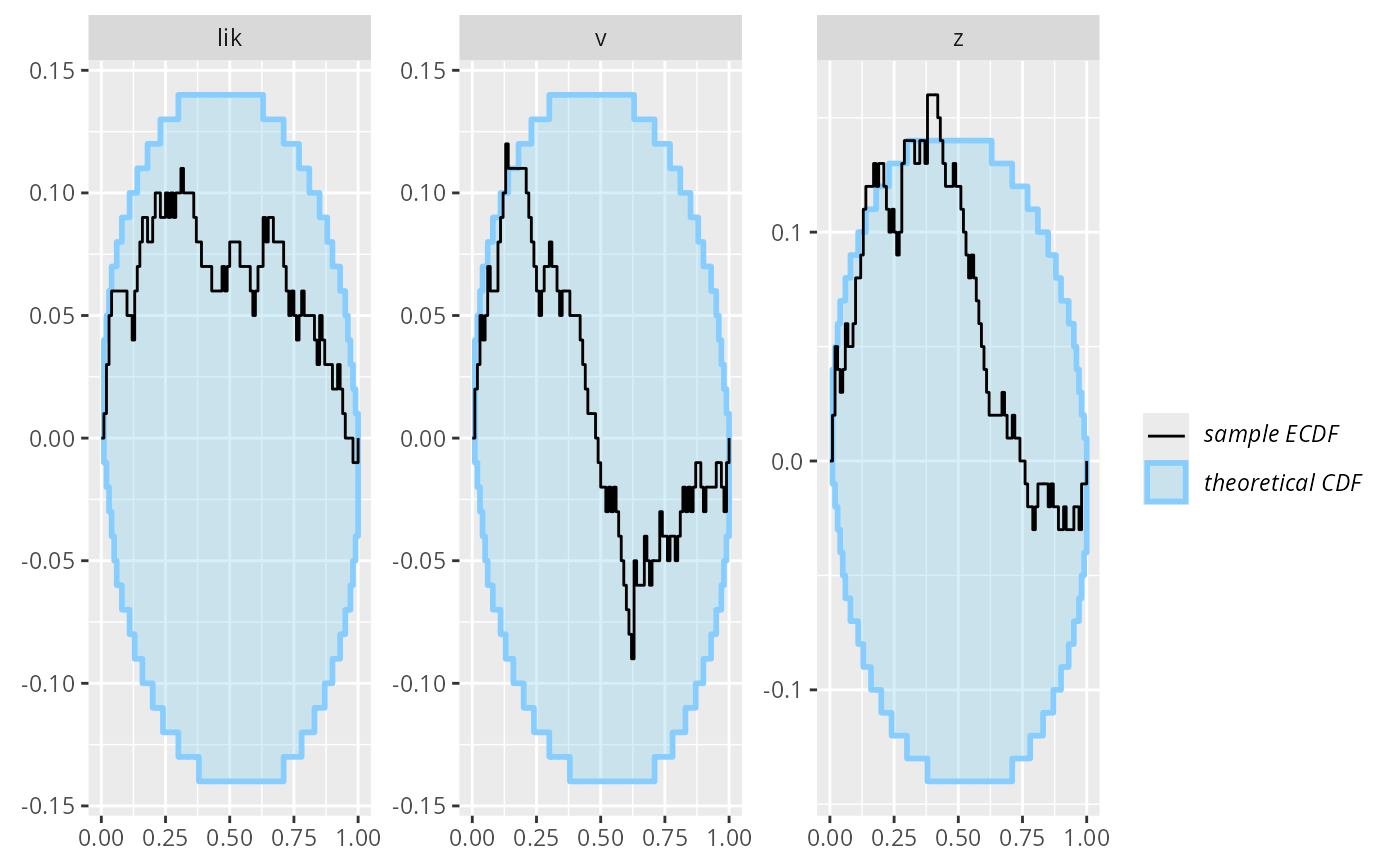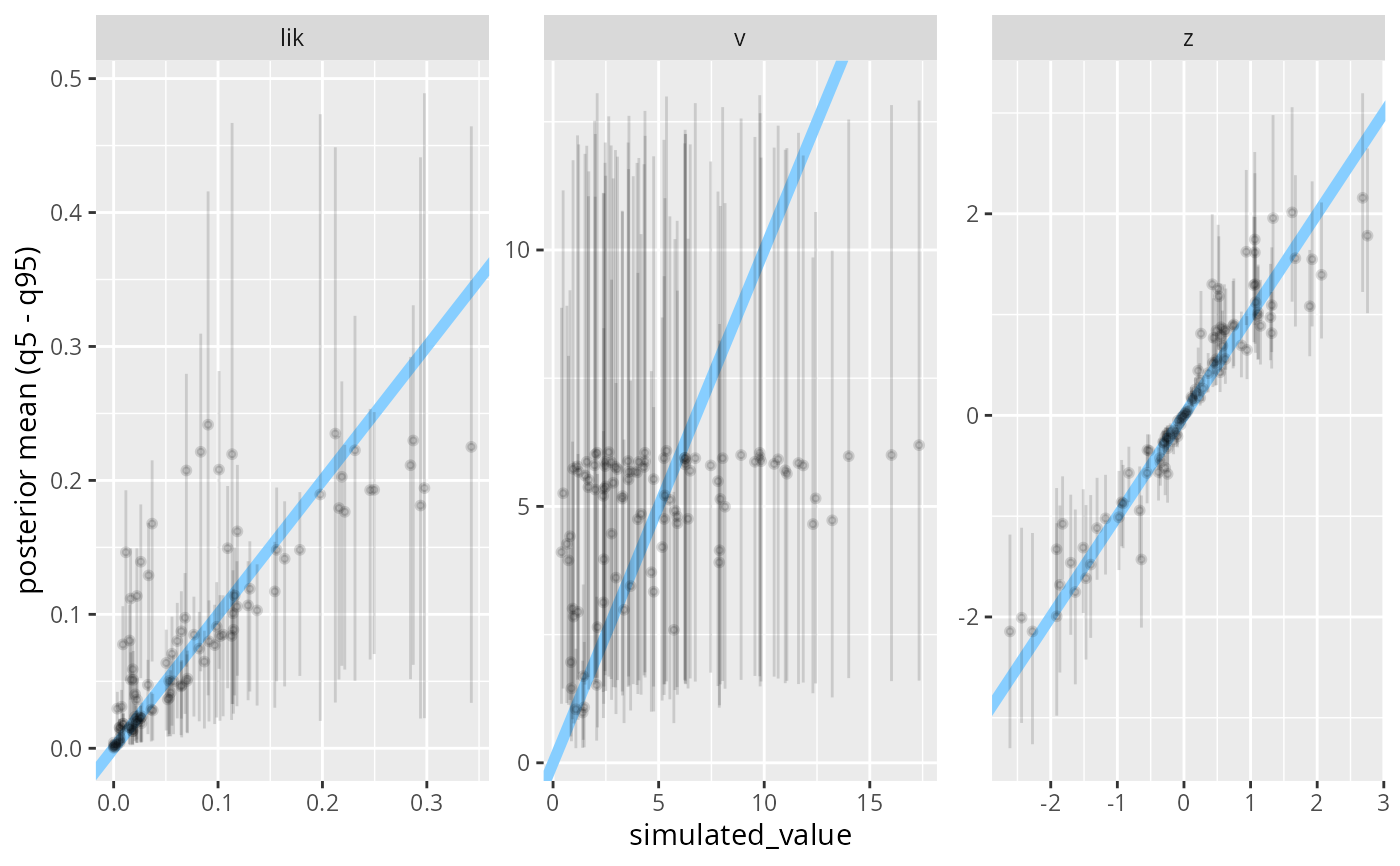If the function returns a draws_matrix object, no other
work is necessary to make it work with SBC.
SBC_backend_function(
func,
generated_arg = "generated",
cores_arg = NULL,
args = list(),
iid_draws = FALSE,
default_thin_ranks = 10
)Arguments
- func
the function that will be called in
SBC_fit()- generated_arg
name of the argument of
functhat will receive the generated data. IfNULL, data is not passed to the function.- cores_arg
name of the argument of
functhat will receive the number of cores to use. IfNULL, information on cores is not passed.- args
a (named) list of additional arguments to the function
- iid_draws
does the result of the backend have independent identically distribute draws (will be returned by
SBC_backend_iid_draws()for this backend).- default_thin_ranks
suggested thinning if user does not specify any (will be returned by
SBC_backend_default_thin_ranks()for this backend).
Examples
# Generate t-distributed variables as a ratio of standard normal (z)
# and transformed chi-squared (v) variables.
# What is the conditional distribution of z if t is observed?
# See https://math.stackexchange.com/a/5085538/423833 for derivation that it
# is generalized gamma distribution. Here we test this is correct.
N_sims <- 100
df <- 5
z <- rnorm(N_sims)
v <- rchisq(N_sims, df = df)
t <- z / sqrt(v/df)
# Bundle in a dataset with extra quantities
my_data <- SBC_datasets(
variables = posterior::draws_matrix
(z = z, v = v, lik = abs(z) * dchisq(df * z^2 / t^2, df = df)),
generated = purrr::map(t, \(t) list(t = t, df = df)))
# Main workhorse function
my_post_func <- function(generated) {
df <- generated$df
t <- generated$t
gg_d <- df + 1
gg_p <- 2
gg_a <- 1/sqrt(df/(2*t^2) + 0.5)
# Transform to parametrization used by ggamma
gg_b <- gg_p
gg_k <- gg_d / gg_p
abs_z <- ggamma::rggamma(1000, gg_a, gg_b, gg_k)
v <- df * abs_z^2 / t^2
lik = abs_z * dchisq(df * abs_z^2 / t^2, df = df)
posterior::draws_matrix(z = abs_z * sign(generated$t),
v = v,
lik = lik)
}
backend <- SBC_backend_function(my_post_func, iid_draws = TRUE)
res <- compute_SBC(my_data, backend, keep_fits = FALSE)
plot_ecdf_diff(res)
 plot_sim_estimated(res)
plot_sim_estimated(res)
